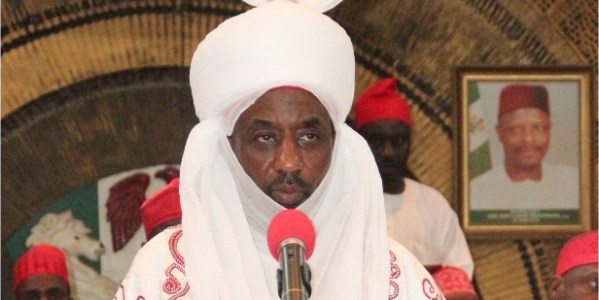On Tuesday, U.S. President Barack Obama (pictured) announced a 3,000 soldier commitment to the areas that are suffering from Ebola the worst. The soldiers will reportedly oversee the building of new treatment centers as well as train health workers. In addition, the UN asked for an increase in funds to fight the fatal disease, according to the BBC.
RELATED: Malaysia To Donate Millions of Gloves To Fight Ebola
Keep Up With Face2Face Africa On Facebook!
The President is pledging the following resources:
- Building 17 healthcare facilities, each with 100 beds and isolation spaces, in Liberia
- Training as many as 500 health care workers a week
- Developing an air bridge to get supplies into affected countries faster
- Provide home health care kits to hundreds of thousands of households, including 50,000 that the US Agency for International Development (USAID) will deliver to Liberia this week
From his speech:
More than 2,400 men, women and children are known to have died — and we strongly suspect that the actual death toll is higher than that. Hospitals, clinics and the few treatment centers that do exist have been completely overwhelmed. An already very weak public health system is near collapse in these countries. Patients are being turned away, and people are literally dying in the streets.
Now, here’s the hard truth: In West Africa, Ebola is now an epidemic of the likes that we have not seen before. It’s spiraling out of control. It is getting worse. It’s spreading faster and exponentially. Today, thousands of people in West Africa are infected. That number could rapidly grow to tens of thousands. And if the outbreak is not stopped now, we could be looking at hundreds of thousands of people infected, with profound political and economic and security implications for all of us. So this is an epidemic that is not just a threat to regional security — it’s a potential threat to global security if these countries break down, if their economies break down, if people panic. That has profound effects on all of us, even if we are not directly contracting the disease.
…
Now, this is a daunting task. But here’s what gives us hope. The world knows how to fight this disease. It’s not a mystery. We know the science. We know how to prevent it from spreading. We know how to care for those who contract it. We know that if we take the proper steps, we can save lives. But we have to act fast. We can’t dawdle on this one. We have to move with force and make sure that we are catching this as best we can, given that it has already broken out in ways that we had not seen before.
So today, I’m announcing a major increase in our response. At the request of the Liberian government, we’re going to establish a military command center in Liberia to support civilian efforts across the region — similar to our response after the Haiti earthquake. It’s going to be commanded by Major General Darryl Williams, commander of our Army forces in Africa. He just arrived today and is now on the ground in Liberia. And our forces are going to bring their expertise in command and control, in logistics, in engineering. And our Department of Defense is better at that, our Armed Services are better at that than any organization on Earth.
President Obama also discussed the slow global response that has occurred to date and underscored his point with a real-life example of a family who is currently suffering from the disease:
Today, the United States is doing even more. But this is a global threat, and it demands a truly global response. International organizations just have to move faster than they have up until this point. More nations need to contribute experienced personnel, supplies, and funding that’s needed, and they need to deliver on what they pledge quickly. Charities and individual philanthropists have given generously, and they can make a big difference. And so we’re not restricting these efforts to governmental organizations; we also need NGOs and private philanthropies to work with us in a coordinated fashion in order to maximize the impact of our response.
…
Let me just close by saying this: The scenes that we’re witnessing in West Africa today are absolutely gut-wrenching. In one account over the weekend, we read about a family in Liberia. The disease had already killed the father. The mother was cradling a sick and listless five-year-old son. Her other son, 10-years-old, was dying, too. They finally reached a treatment center but they couldn’t get in. And, said a relative, “We are just sitting.”
These men and women and children are just sitting, waiting to die, right now. And it doesn’t have to be this way.

Meanwhile, the United Nations Ebola Coordinator David Nabarro is asking for $1 billion to fight the Ebola virus.
Bemoaning the world’s slow response to the Ebola virus outbreak, Nabarro said during a briefing in Geneva, “We requested about $100m a month ago and now it is $1bn, so our ask has gone up 10 times in a month.”
“Because of the way the outbreak is advancing, the level of surge we need to do is unprecedented, it is massive,” he added.
The Ebola virus has reportedly infected 4,985 people — half of that number (2,461) have died. Consequently, the World Health Organization described the outbreak as “unparalleled in modern times.”
RELATED: Officials: Ebola Is ‘Threat To Liberia’s National Existence’










